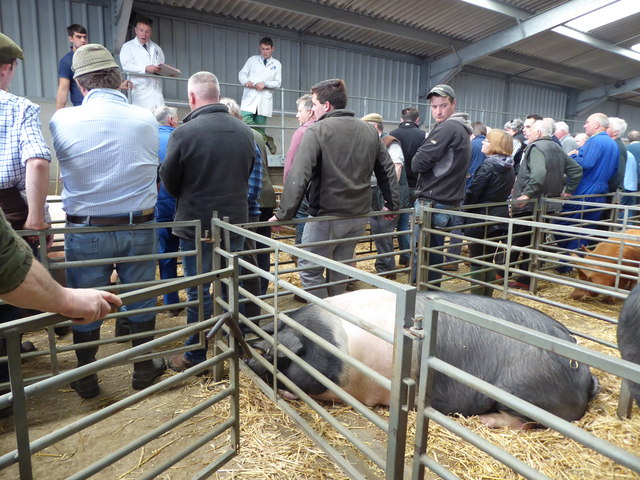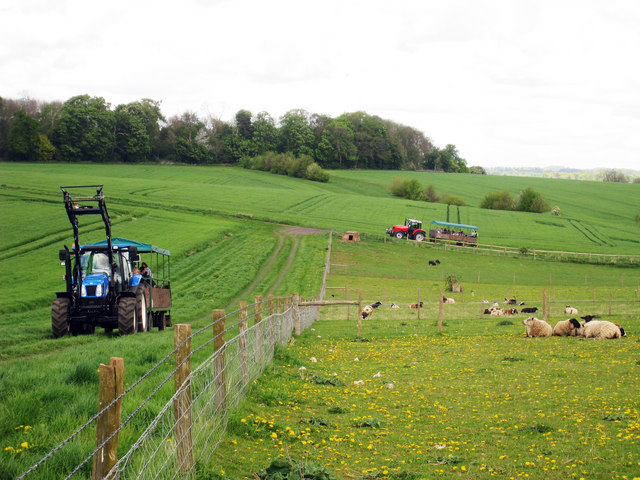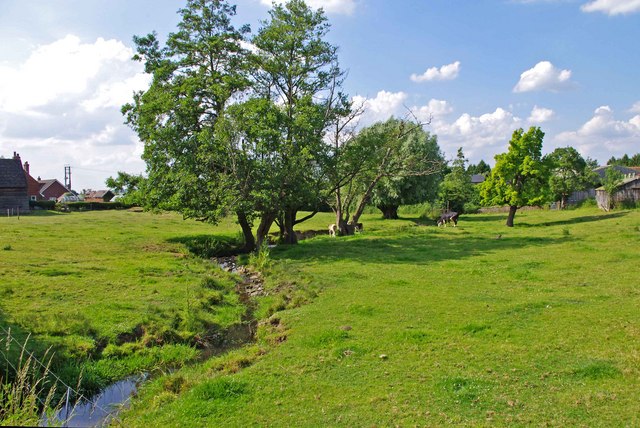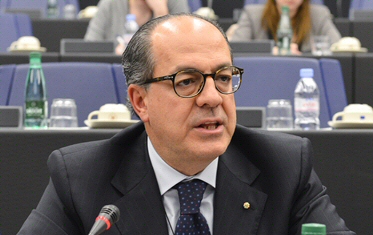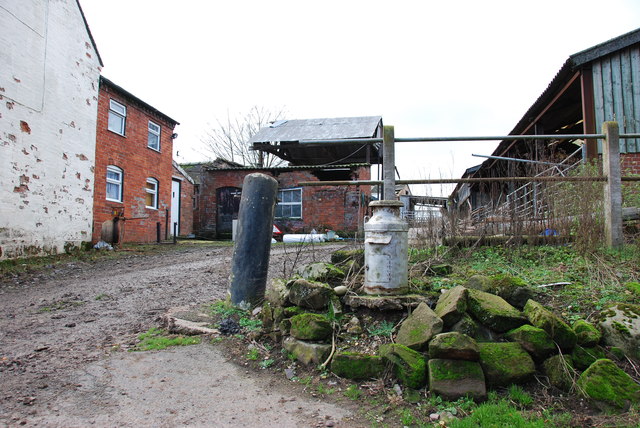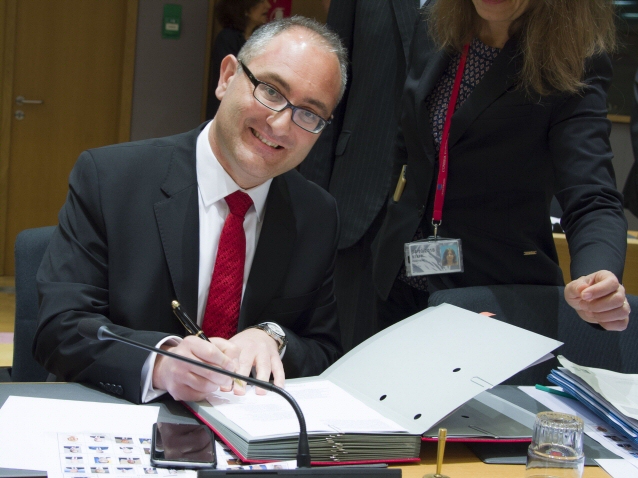In a previous post, I discussed trends in agricultural employment and the impact of CAP policies on these trends. I noted how policy-makers are asking whether EU agricultural policy could do more, or be more effective, in contributing to job creation. Last year the European Parliament passed a resolution on how the CAP could improve job creation in rural areas. The issue will also be raised in the Commission’s Communication on modernising and simplifying the CAP which is expected towards the end of this year.
In this post, I discuss the role that the CAP could play in promoting jobs.… Read the rest
CAP – out of the box thinking
Last Monday saw the launch of a report “CAP – thinking out of the box” by the Rural Investment Support for Europe (RISE) Foundation. The report director was Allan Buckwell and the other contributors to the report are Erik Mathjis, David Baldock and myself. The report is a response to the public consultation on the modernisation and simplification of the CAP launched by Commissioner Phil Hogan in February.
Below, I reproduce a short summary of the key messages of the report.
… Read the restFurther adaptation of the CAP is necessary to help EU farming become a well-structured industry which is economically viable and environmentally sustainable.
Does the Basic Payment make farmers lazy?
The provocative title of this post was prompted by a tweet in my Twitter timeline (@xAlan_Matthews) which told how a farm speaker at a meeting the tweeter had attended had said he/she was frustrated by how many farmers do not manage their farms as businesses and that the Basic Payment makes some lazy.
I do not want to make moral judgements about anyone’s conduct but it is, indeed, an interesting question to ask how the CAP support system affects farmers’ individual behaviour. It is, of course, well known that farmers’ decision-making is often motivated by reasons other than rational profit-maximising behaviour.… Read the rest
Is a level playing field an argument for continued support to UK agriculture after Brexit?
We are pleased to publish this guest post by David Blandford (Penn State University) and Berkeley Hill (Imperial College London).
The President of the National Farmers Union (NFU) of England and Wales told the Food Manufacture Group’s Business Leaders’ Forum (Feb 14, 2017) that the NFU is currently actively lobbying the UK government to ensure that British farmers are not disadvantaged with respect to their main competitors in Europe following Brexit. The fear seems to be that cuts in the £3 billion of direct aid, which seem highly likely when Britain leaves the EU and its CAP, will result in a non-level playing field in which UK farmers are put at a competitive disadvantage.… Read the rest
The CAP and agricultural employment
Phil Hogan, the EU Commissioner for Agriculture and Rural Development, has promised a Communication on modernising and simplifying the CAP before the end of 2017. One of the six broad objectives for the CAP set out in the Commission’s inception impact assessment is to “encourage a vibrant rural economy by fostering growth and jobs in rural areas and encouraging generational renewal”.
This builds on one of the three objectives for Pillar 2 rural development spending in the 2014-2020 period which is “achieving a balanced territorial development of rural economies and communities including the creation and maintenance of employment” (Art.… Read the rest
COMAGRI co-rapporteur proposes Omnibus Regulation amendments
We are pleased to bring you this guest post by Paolo de Castro MEP who is a co-rapporteur for the European Parliament’s AGRI Committee on the so-called Omnibus Regulation which proposes to amend the CAP basic acts with a view to their simplification. Mr de Castro introduced his draft report at the AGRI Committee last Monday 13 March, and it is now open for amendment by other AGRI Committee members until March 21st. The following is an edited version of his remarks.
The Omnibus proposal represents, despite its significant management and administrative complexity, an important opportunity to improve and solve the major issues that our farmers have been facing over the first three years of application of the new CAP.… Read the rest
The viability of EU farms
Economic sustainability is usually taken to be one of the three legs of the sustainability concept (the others being environmental and social sustainability – hence the phrase ‘people, planet, profit’). But what do we know about the economic sustainability of EU farming and how to measure it? A recent paper by researchers (Cathal O’Donoghue, Simon Devisme, Mary Ryan, Ricky Conneely, Patrick Gillespie and Hans Vrolijk) participating in the FLINT project have now used a pilot dataset collected at farm level in 8 Member States to focus attention on this issue.
The FLINT (Farm Level Indicators for New Topics) research project investigates the feasibility of providing policy-makers and the agro-food industry with farm-level indicators on sustainability and other relevant new issues.… Read the rest
AGRIFISH Council meeting underlines pressures to reverse CAP reform
Agricultural Ministers had a round table discussion on the future of the CAP at yesterday’s AGRIFISH Council meeting in Brussels. This was based on an orientation paper prepared by the Maltese Presidency.
The orientation paper identified six CAP priorities. These included the three previously identified by the Commissioner – building resilience, responding to environmental challenges, and generational renewal – and three others – investing in rural viability and vitality, maintaining a market orientation and strengthening farmers’ position in the food chain. Ministers were invited to answer the following questions:
… Read the rest
In your view, what would be most effective way to address the CAP priorities?
COMAGRI rapporteur’s draft amendments to Omnibus Regulation
The COMAGRI rapporteur on the agricultural articles of the Omnibus Regulation Paolo de Castro (the other proposed co-rapporteur Albert Dess having at least temporarily dropped out of sight) has now circulated his Draft Opinion containing proposed amendments to the Committee to be debated later this month. The Omnibus Regulation (which is actually a proposal for a Regulation on the financial rules applicable to the general budget of the Union but as well amends a number of sectoral regulations) is the first opportunity to make changes to the CAP basic acts since the 2013 CAP reform was concluded.
In this previous post, I reported on the contributions made during the first debate on the Omnibus Regulation in COMAGRI in December last year.… Read the rest

